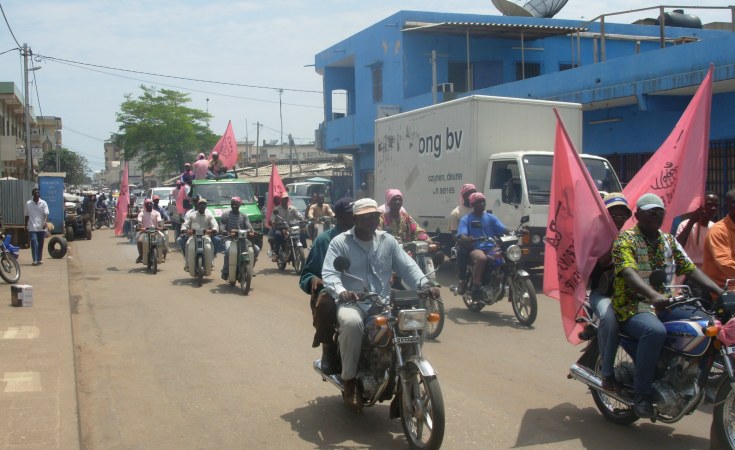Lomé — Togo's ruling party has extended its majority in parliament, according to provisional results released by the nation's electoral commission on Sunday, helping entrench a family that has been in power for several decades.
Opposition figures have claimed that there were irregularities in the voting process, but regional electoral observers have given the vote the all clear.
Postponed three times since October 2012, these legislative elections were finally held on 25 July and put an end to several months of tense negotiations between the ruling Union pour la République (UNIR) and the opposition over issues related to boundary delimitation, political party finance and, most of all, deep distrust.
In this election, opposition parties - grouped under the Arc-en-Ciel and Collectif Sauvons le Togo coalitions - seemed more organised and determined than ever to defeat UNIR. Togo has been ruled by the same family since 1967, and the opposition hoped that with a parliamentary majority, it could push through reforms necessary to reduce the overwhelming powers of the presidency. However, with provisional results suggesting the ruling party has not only maintained but increased its majority, the possibility of such hopes being realised remains in significant doubt.
Contestation, violence and a sterile political dialogue
President Faure Gnassingbé first rose to the top seat in the land after being installed by the military on 5 February, 2005, following the death of his father, Gnassingbé Eyadéma, who had ruled Togo for the previous 38 years. But amidst regional pressure regarding the unconstitutionality of this move, Gnassingbé resigned 20 days later. Just two months after that, however, in April 2005, Gnassingbé rose again to the presidency after winning highly controversial presidential elections. Angry protests broke out in the aftermath of the disputed elections, and violence ensued in which hundreds of Togolese died and thousands were injured or fled to neighbouring countries.
In this polarised environment, it became clear that any semblance of dialogue between the opposition and government could help resolve the tensions, and a number of promising agreements were made within the Accord Politique Global of 2006. This deal included the creation in 2009 of the Cadre Permanent de Dialogue et de Concertation (CPDC) as a major dialogue platform, from which questions about access to state media, a code of conduct of political parties, and questions of national unity would be examined.
In 2009, a Truth, Justice and Reconciliation Commission was also created to investigate not just the violence around 2005, but between 1958 and 2005, and to compensate victims. The Commission published a series of 68 strong recommendations to promote national cohesion, most of which have not yet been implemented.
In 2010, there were presidential elections once more. Again, the opposition cried foul - though these were deemed free and fair by international observers - and Gnassingbé retained the presidency. Over the past few years, the sense that the ruling family is becoming further entrenched and is illegitimately manipulating the country to maintain its power has deepened.
Presidential Elections in 2015, a critical turning point for the country
Togo suffers from a range of structural and political problems that renders the country undemocratic. The 2002 Constitution provides the President with a number of vast and ambiguous prerogatives such as an unlimited number of terms and the ability to nominate and sack the Prime Minister as he wishes. In addition, the Electoral Commission, the judiciary and the Haute Autorité de Regulation de l'Audiovisuel et des Médias in charge of regulating the media are all closely linked to the government.
The Togolese electoral system is also unusual in Africa in that the presidency is decided in a single vote, with no possibility of a second-round run-off. This means that leading candidate wins whether or not he/she gained an absolute majority, and this limits the ability for candidates to re-group and re-strategise for a run-off. This system tends to favour the candidate who has the most financial and logistical means to reach constituencies across the entire country.
In order to improve checks and balances in the Togolese governance system, important institutional reforms clearly need to take place. The opposition had hoped that these could be pushed through with a majority in parliament, but with provisional results showing 62 seats out of 91 in the hands of the ruling party, these hopes are put into question once more.
Kamissa Camara is the Program Officer for West Africa at the National Endowment for Democracy. She previously worked in the Africa section at the International Foundation for Electoral Systems (IFES) and specializes in governance and election administration issues.


